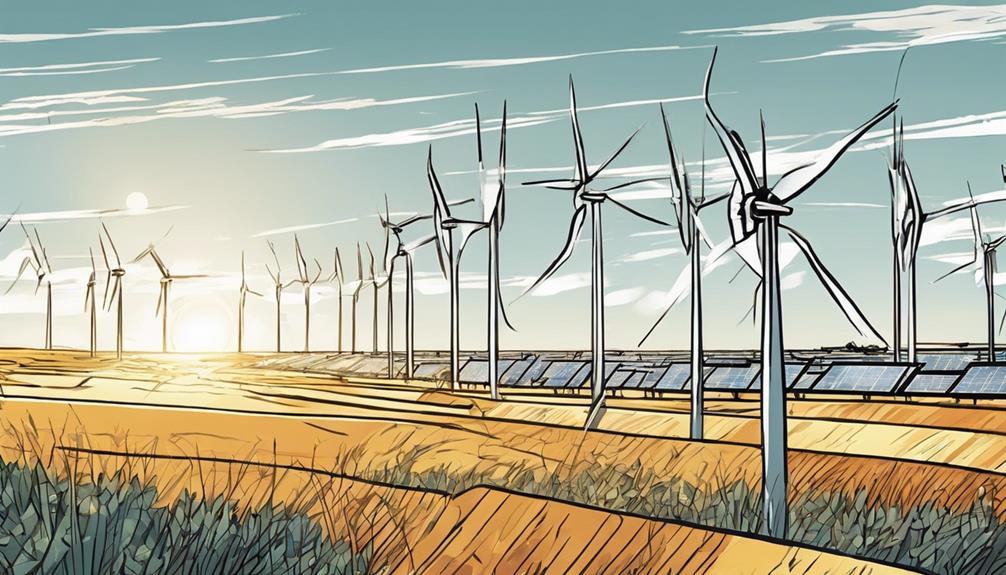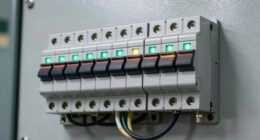As scientists seeking cleaner energy sources, we're turning to solar and wind power to mitigate greenhouse gas emissions, enhance energy independence, and create a sustainable future. We're excited about the benefits of renewable energy, including reduced emissions, improved public health, and job creation. Solar energy, in particular, offers high efficiency, reliability, and cost-effectiveness. However, we recognize that economic disparities and lack of awareness hinder widespread adoption. By promoting education and awareness, we can overcome these barriers and create a cleaner, more sustainable future. Let's explore the key factors driving this shift and discover the advantages of investing in cleaner energy solutions.
Key Takeaways
- Scientists seek cleaner energy sources like solar and wind to mitigate greenhouse gas emissions and reduce dependence on fossil fuels.
- Solar energy offers high efficiency, zero emissions, and reliability, making it a cost-effective solution for a sustainable future.
- Wind energy provides a low-cost, renewable alternative to fossil fuels, driving economic growth and job creation in the sector.
- Shifting to solar and wind energy helps combat climate change by decreasing air pollution, improving public health, and enhancing energy independence.
- Investing in cleaner energy solutions like solar and wind power ensures a healthier future, stimulates economic growth, and increases energy security.
Renewable Energy Sources Benefits
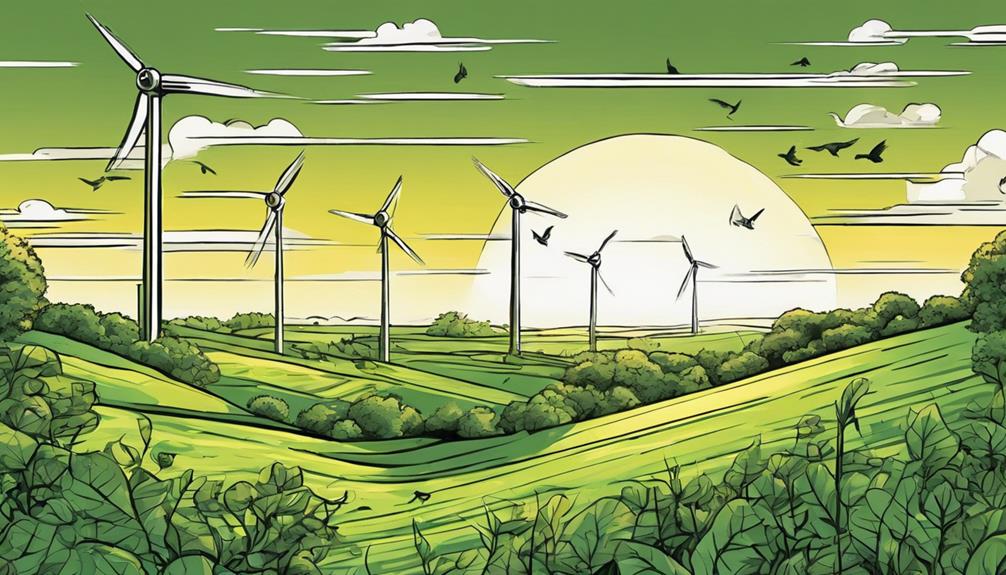
As we shift towards a cleaner future, our reliance on renewable energy sources like solar and wind power offers numerous benefits, from reducing our dependence on fossil fuels to improving public health outcomes.
By shifting to cleaner energy sources, we can mitigate greenhouse gas emissions, enhance energy independence, and create jobs. Research in renewable tech leads to efficiency and cost-effectiveness.
Cleaner energy sources also improve public health outcomes, reducing air pollution and combating climate change. Additionally, renewable energy investments lead to job creation and energy independence.
As we continue to invest in innovative technologies, we can guarantee a cleaner, more sustainable future for generations to come.
Solar Energy Advantages Explained
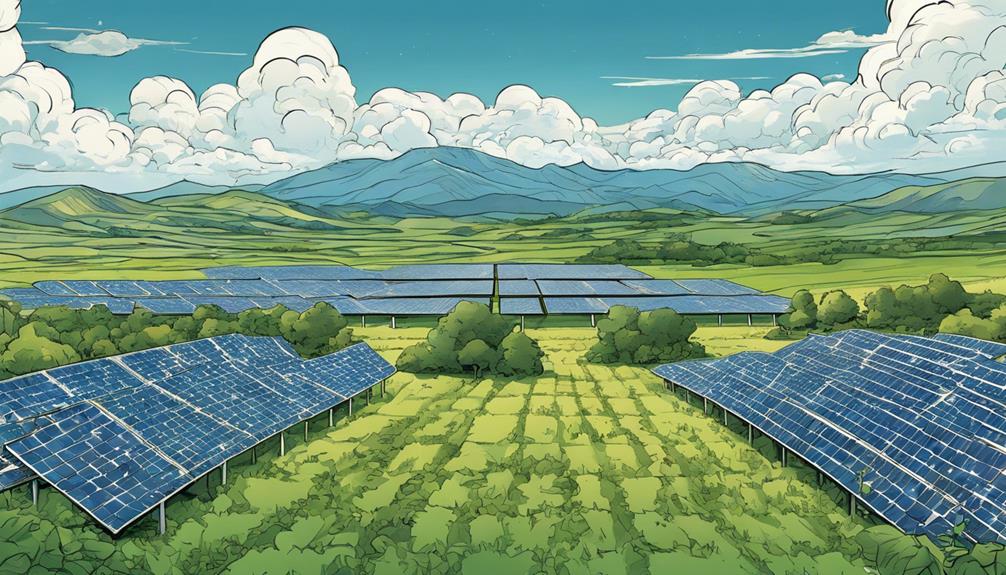
We're harnessing the power of solar energy, a highly efficient and clean source that reduces air pollution and combats climate change by producing no harmful emissions or pollutants. Solar panels convert sunlight directly into electricity, minimizing energy losses during transportation. This reliable and sustainable energy source is available as long as the sun shines. Advancements in solar technology have improved panel efficiency, making it cost-effective.
| Advantage | Description |
|---|---|
| High Efficiency | Converts sunlight into electricity with minimal losses |
| Clean Energy | Produces no harmful emissions or pollutants |
| Reliability | Available as long as the sun shines |
| Cost-Effective | Improved panel efficiency reduces costs |
Promoting Renewable Energy Awareness
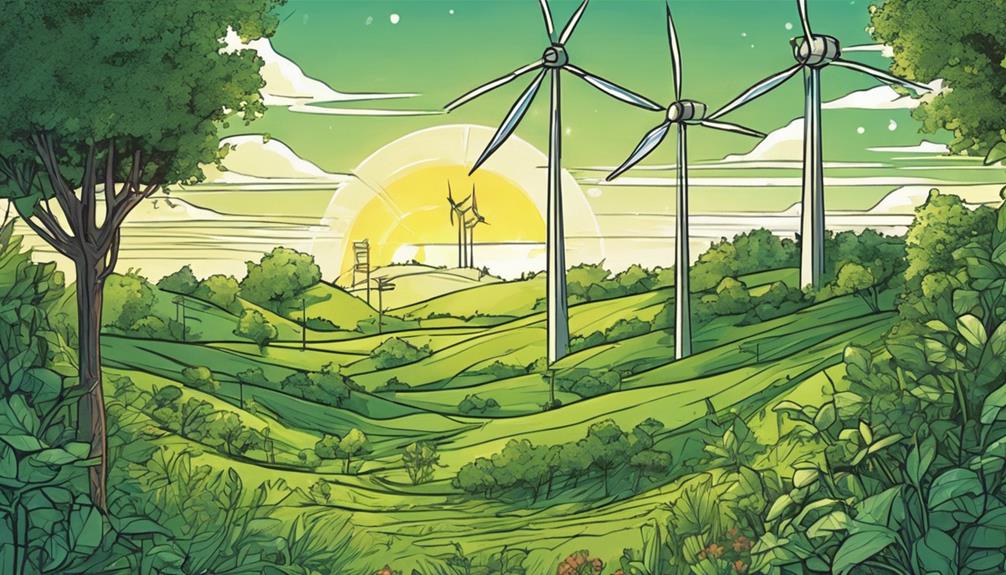
Hosting workshops and collaborating with local organizations are essential steps in educating individuals about the benefits of renewable energy, ultimately driving a more sustainable future.
We believe that by engaging with our communities, we can empower individuals to make a positive impact on the environment. Utilizing social media platforms, we can extend our reach and educate a larger audience about the importance of renewable energy.
By involving students in green initiatives, we can cultivate environmentally conscious individuals who'll shape a sustainable future. We must educate the public about renewable energy to guarantee long-term sustainability.
Economic Disparities in Solar Access

Economic inequality greatly impacts access to solar energy, with low-income communities facing financial constraints that hinder their ability to adopt this clean and sustainable source of power. We've seen how high initial expenses and lack of access to capital create barriers to adoption.
Additionally, limited knowledge about solar energy benefits and the absence of community engagement initiatives exacerbate the issue. To bridge this economic gap, we believe that government incentives, such as tax credits, can help reduce initial costs. Policies that expedite solar power adoption and promote renewable energy targets can also drive investment.
Key Factors for Solar Installation
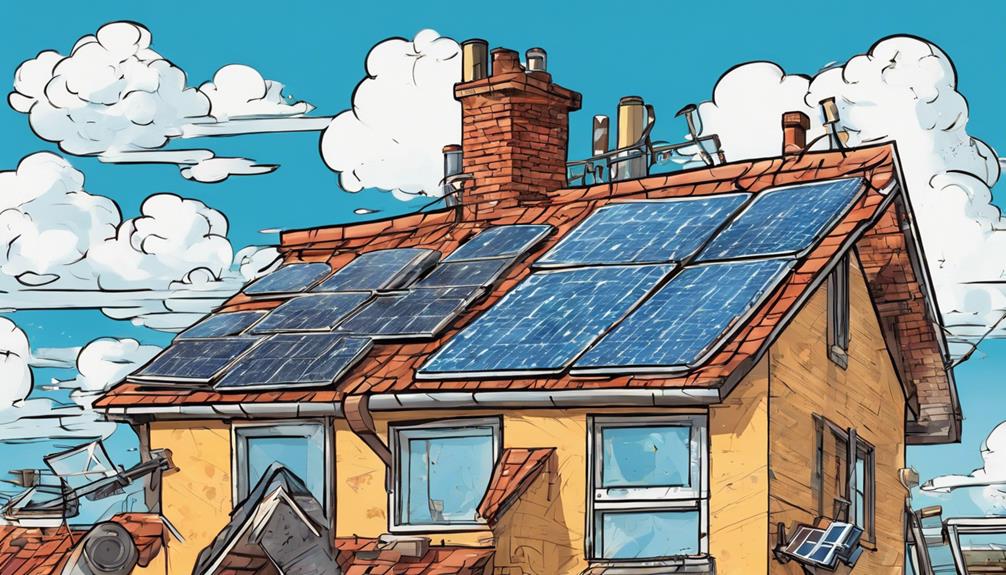
When considering solar panel installation, we must carefully evaluate several key factors, including sunlight quantity, panel efficiency, and maintenance expenses, to ensure peak energy generation and savings. These factors are essential in determining the best number of panels needed to meet our energy needs.
| Factor | Impact on Energy Generation |
|---|---|
| Sunlight Quantity | Affects energy generation efficiency |
| Panel Efficiency | Determines electricity generation effectiveness |
| Maintenance Expenses | Affects panel lifespan and performance |
| Cost of Installation | Impacts initial investment |
| Energy Consumption Patterns | Determines ideal panel number |
Importance of Sustainable Practices
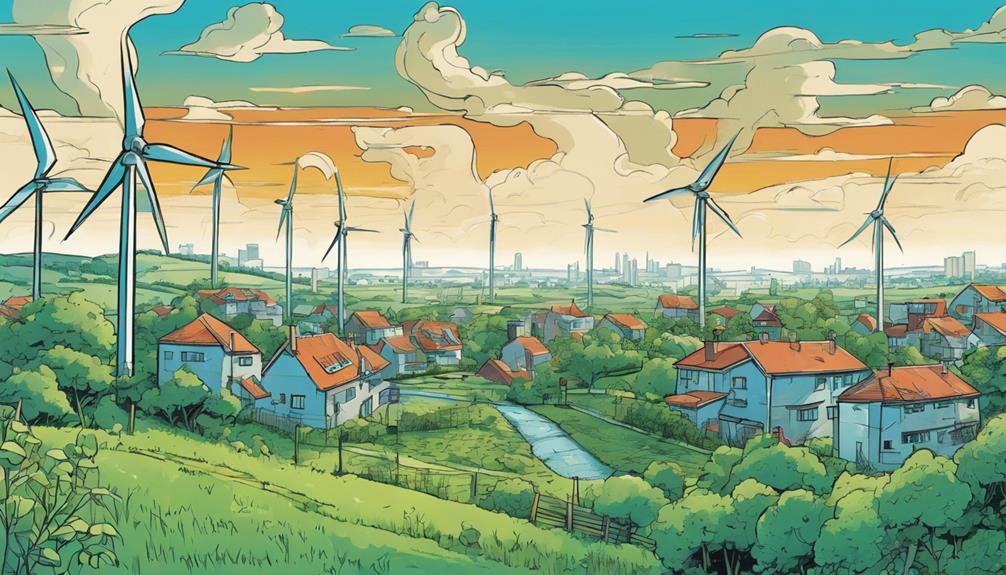
Shifting to sustainable practices is essential for our collective future, as it enables us to reduce our dependence on fossil fuels and mitigate the devastating impacts of climate change. By investing in renewable energy sources like solar and wind power, we can greatly decrease greenhouse gas emissions and create a cleaner environment.
Here are some key reasons why sustainable practices are crucial:
- Reduced reliance on fossil fuels: Changing to cleaner energy sources reduces our dependence on finite resources.
- Improved public health outcomes: Sustainable practices lead to a decrease in air pollution, resulting in better health for communities worldwide.
- Enhanced energy independence: Investing in renewable energy sources increases energy security and reduces reliance on imported fuels.
- Job creation and economic growth: The renewable energy sector creates new job opportunities and stimulates local economies.
Mitigating Climate Change Impacts
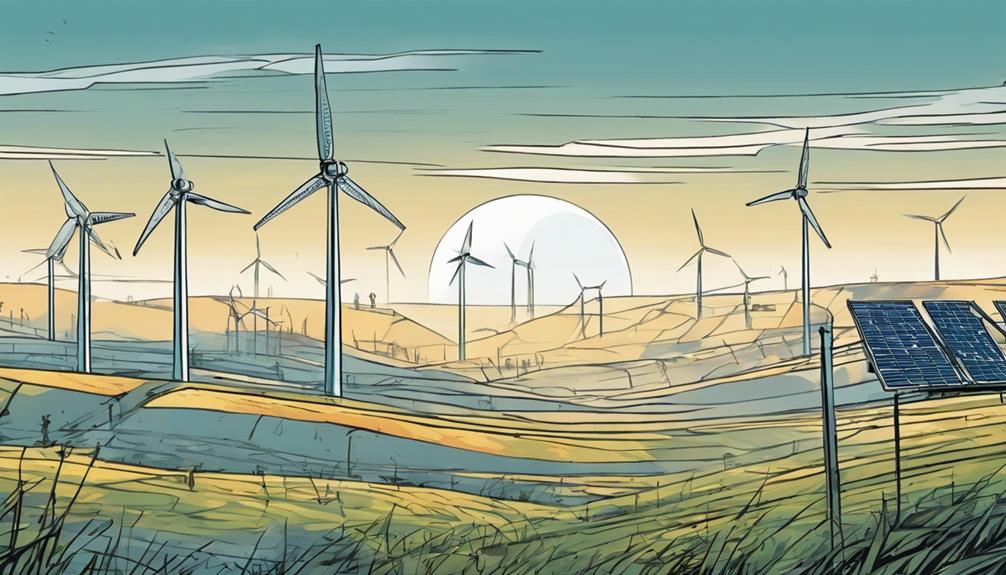
As we move towards cleaner energy sources like solar and wind power, we're taking an essential step in mitigating the devastating impacts of climate change. By shifting away from fossil fuels, we're reducing our dependence on pollutants and decreasing greenhouse gas emissions. This, in turn, helps slow the pace of global warming and its associated consequences, such as rising sea levels, intense storms, and droughts.
We're also improving public health outcomes by minimizing air pollution, which is responsible for millions of premature deaths annually. Additionally, investing in renewable energy stimulates economic growth, creates jobs, and enhances energy independence.
It's crucial we continue to prioritize sustainable practices, driving innovation and efficiency in the renewable energy sector to guarantee a cleaner, healthier future for generations to come.
Enhancing Energy Independence Security

By diversifying our energy mix with solar and wind power, we're strengthening our energy independence security through reduced reliance on imported fuels and enhanced domestic energy production. This shift towards cleaner energy sources not only mitigates climate change impacts but also enhances our energy security.
Here are some key benefits:
- Reduced dependence on fossil fuels: Shifting to solar and wind power reduces our reliance on imported fuels, making us less vulnerable to price fluctuations and supply disruptions.
- Increased energy self-sufficiency: Domestic energy production from solar and wind power enables us to meet our energy needs without depending on foreign sources.
- Improved energy infrastructure: Investing in solar and wind power encourages the development of new energy infrastructure, creating jobs and stimulating local economies.
- Enhanced energy resilience: Diversifying our energy mix with solar and wind power reduces the risk of energy shortages and boosts our ability to respond to energy crises.
Creating a Sustainable Future Together
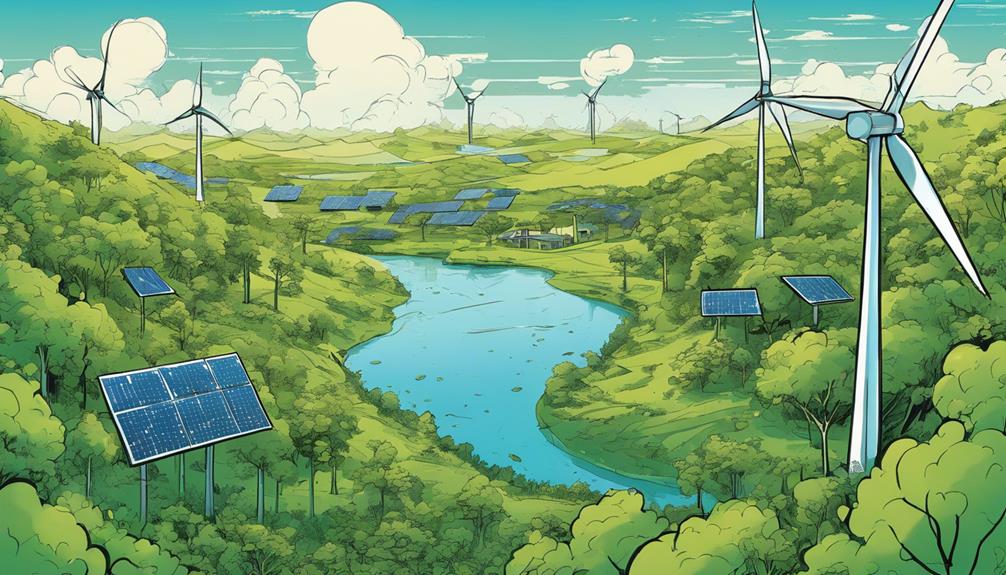
By embracing a collective commitment to renewable energy, we're taking a pivotal step towards creating a sustainable future where everyone has access to clean, reliable, and affordable energy.
| Community | Education | Action |
|---|---|---|
| Host workshops | Integrate sustainability topics | Collaborate with local organizations |
| Engage online communities | Educate about renewable benefits | Partner with environmental groups |
| Involve students in green initiatives | Provide sustainability education | Build relationships with local organizations |
Together, we can empower individuals, educate communities, and drive collective action towards a cleaner, greener future. By working together, we can overcome economic disparities, promote renewable energy awareness, and create a sustainable future for all.
Investing in Cleaner Energy Solutions
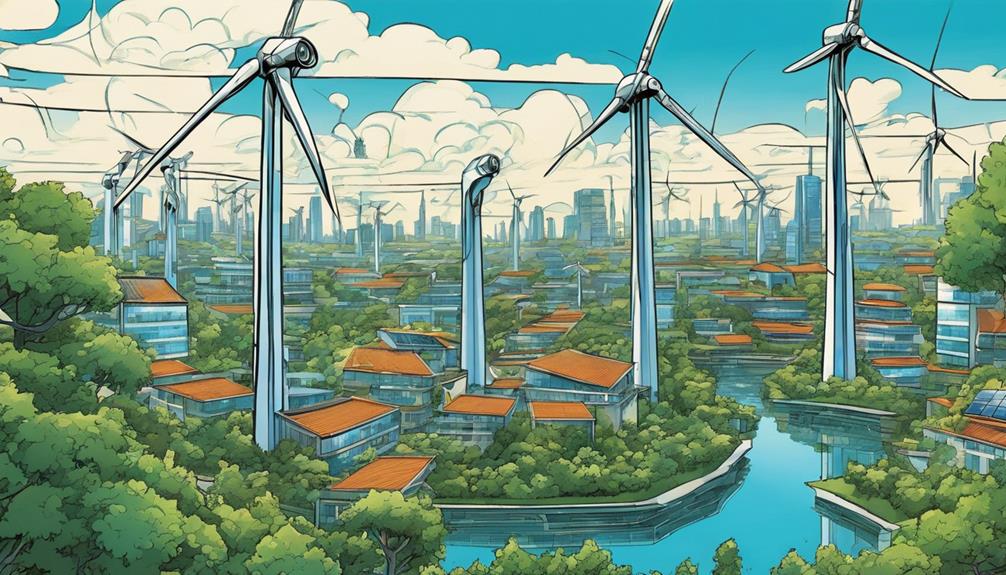
We're dedicated to investing in cleaner energy solutions, recognizing that moving to solar and wind power is essential for mitigating climate change impacts and improving public health outcomes. As we shift away from fossil fuels, we're creating a more sustainable future for ourselves and future generations.
Here are some key benefits of investing in cleaner energy solutions:
- Reduced greenhouse gas emissions: Solar and wind power produce fewer emissions than traditional fossil fuels.
- Improved energy independence: By harnessing renewable energy, we're less reliant on imported fuels and more secure in our energy supply.
- Job creation and economic growth: The renewable energy sector is creating new job opportunities and stimulating local economies.
- Enhanced energy efficiency: Advances in renewable technology have led to more efficient energy production and consumption.
Frequently Asked Questions
Can Renewable Energy Sources Power Entire Cities and Industries?
'We believe renewable energy sources can power entire cities and industries. In fact, shifting to solar and wind power can substantially reduce greenhouse gas emissions and enhance energy independence.'
How Do Government Policies Impact the Adoption of Solar Energy?
We've found that government policies greatly influence solar energy adoption, as incentives like tax credits and net metering laws offset upfront costs, driving investment and making clean energy more accessible to diverse communities.
What Role Do Community Engagement Initiatives Play in Promoting Sustainability?
We believe community engagement initiatives play a crucial role in promoting sustainability by educating the public, fostering a culture of environmental responsibility, and empowering individuals to make positive changes, ultimately driving the adoption of renewable energy sources.
Can Energy Storage Solutions Address Intermittency Issues in Solar Power?
We believe energy storage solutions can effectively address intermittency issues in solar power, enhancing reliability and ensuring a steady supply of clean energy, which is essential for a sustainable future.
How Does Investing in Renewable Energy Affect the Global Economy?
'As we set off on a journey towards a sustainable future, we find that investing in renewable energy triggers a chain reaction of economic benefits, sparking job growth, stimulating local economies, and paving the way for a cleaner, greener tomorrow.'
What Are the Advantages of Wind Energy as a Cleaner Energy Source Compared to Solar?
Wind energy has its own set of advantages and limitations when compared to solar. One advantage of wind energy is that it can be more consistent in certain locations, while solar energy is reliant on daylight. On the other hand, limitations include the visual impact of wind turbines in certain landscapes.
Conclusion
As we set off on this transformative journey, we're not just mitigating the dark clouds of climate change, we're illuminating a brighter future.
By harnessing the power of solar and wind energy, we're paving the way for a world where clean air, energy independence, and a thriving planet are the norm.
Together, let's seize this opportunity to rewrite the script of our energy narrative, and create a sustainable tomorrow that's truly radiant.
